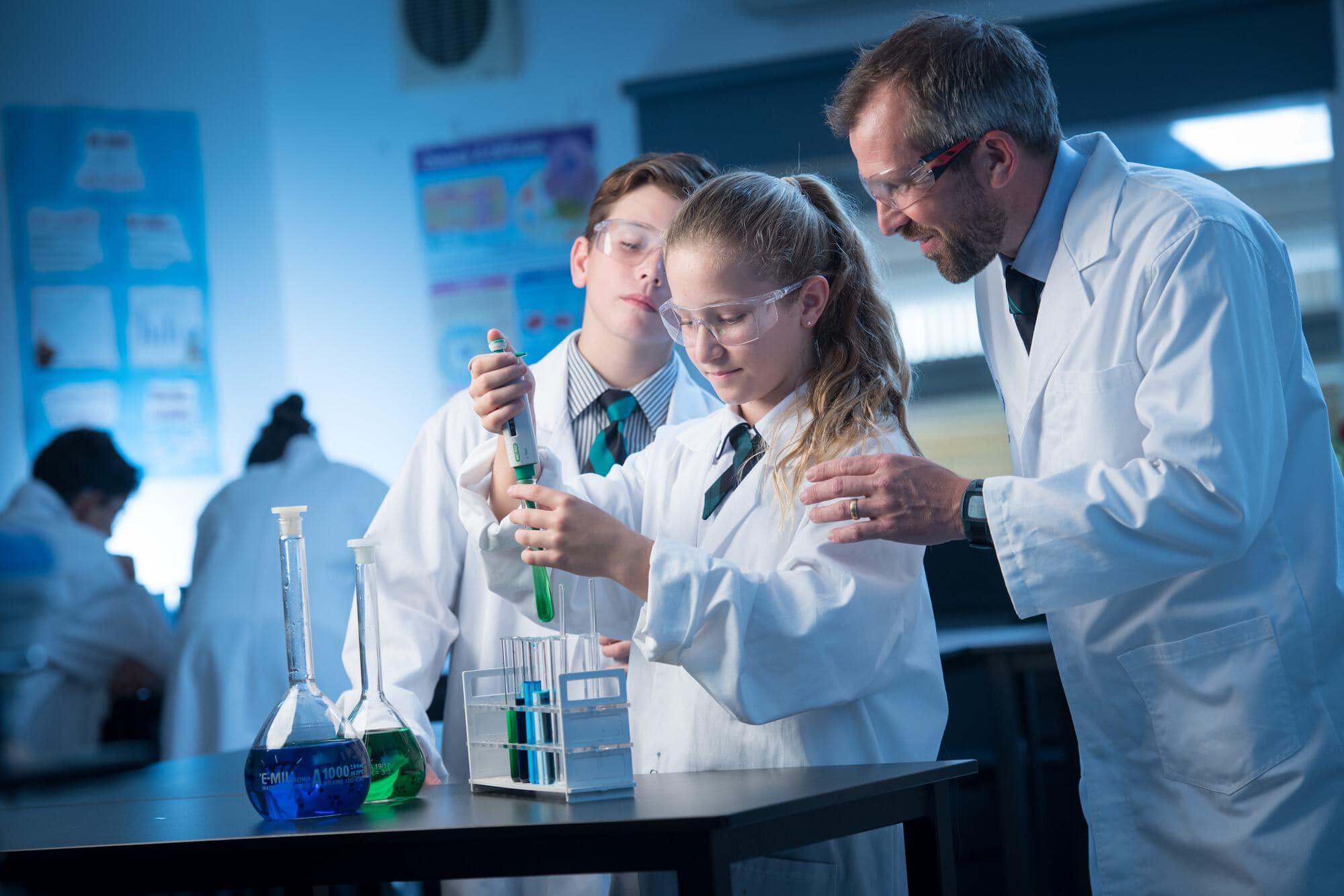There is nothing more certain than change. But what sets apart this period in our history is the speed at which our world is being transformed by advancements in new technologies and intelligence. This presents significant challenges for education systems and schools responsible for educating and equipping students for an unknown world.
Today’s pace of technological change is staggering, and the speed of current breakthroughs has no historical precedent. Consumers may seem well-versed with the latest personal gadgets, yet growth in artificial intelligence (AI), robotics, autonomous vehicles, and nanotechnology remains hardly known except by technology gurus who live and breathe ones and zeros. The coming interplay of such technologies from both physical and virtual worlds will make the unthinkable, possible.
We believe that we are in the first few days of the next Industrial Revolution and that the coming age will systematically shift the way we live, work, and connect to and with one another. It will affect the very essence of the way humans experience the world. Although the 2000’s brought with them significant change in how we utilise technology to interact with the world around us, the coming transformational change will be unlike anything mankind has ever experienced (Schwab, 2016).
The Fourth Industrial Revolution, toward which we are racing as a society, is still in its infancy but growing exponentially. Advances in technology are disrupting almost every industry and in almost every country. Take a moment to consider the digital disruption that has already occurred in the following industries (Godwin, 2015):
•���� ��The largest taxi company owns no (human-driven) taxis (Uber)
•���� ��The largest accommodations provider owns no real estate (Airbnb)
•���� ��The most valuable retailer has no inventory (Alibaba)
•���� ��The most popular media platform creates no content (Facebook)
•���� ��The largest movie house owns no cinemas (Netflix)
•���� ��The largest phone companies own no telecommunications infrastructure (Skype, WhatsApp, Facebook Messenger)
•���� ��The fastest-growing banks actually have no money (Kickstarter, Zopa, SocietyOne)
Today, a student at �������ϲʿ����ֳ�ֱ�� can transfer money to and from his or her bank account, listen to music, watch a favorite TV episode, pay bills, book a flight, order pizza, shop at a favourite store, send a message to a friend, and special order a rare collector’s edition of Harry Potter - all while never moving out of their bedroom. Only a few years ago, those combined tasks would have taken an entire day.
So what does this mean for a Flinders graduate? What sort of world are they entering when they leave the comfort and security of Flinders? And how can we as teachers prepare them for it?
According to a recent report by McCrindle (2018), 44% of Australian jobs (5.1 million current jobs) are at risk from digital disruption in the next 20 years, and 75% of Australia’s fastest growing occupations require STEM skills – Science, Technology, Engineering and Maths. As these technological shifts redefine job demands, it’s more important than ever before for our graduates to be innovative, collaborative, proactive, and responsive to ensure they remain future-proofed for tomorrow’s workforce.
Being Innovative
In the next 10 years, there will be significant shifts to the labour market. There is a basic reality around job functions in developed economies with a relatively high cost of labour: everything that can be automated will be automated, and every role that can be offshored to lower cost-base countries will be offshored. However, technology and business innovation will create new and diverse roles in areas that technology can’t compete. Roles that require creative input, people-focus, leadership skills or high-level communication talent can be future-proofed as they are not effectively replaceable by technology.
Being Collaborative
It’s important not just to focus on academic outcomes but the people skills; not just the learning but on the ability to work well with others. The year 1997 was the first instance in which we began spending more time looking at screens than experiencing face-to-face interaction. And in 2019, individuals spend more than 10 hours on screens daily. In tomorrow’s job market, if someone has a good ability to communicate, motivate, and engage – they’ll go far.
Staying Proactive
In today’s flat-structured work environments, people need to be self-leaders and managers and stay self-directed. In previous decades it was the norm to have a very structured workplace with a chain of command where employers were looking for compliance rather than proactive innovation. Today there is the need for a self-starter mentality in every organisation – for employees at all levels to take charge and show proactive initiative.
Being Responsive
It’s important to keep eyes on the external environment in order to observe what’s happening around you and respond appropriately. Individuals who can remain experts at their craft and also extend their knowledge to various domain areas will be future-proofed. A career that is future-proofed may in fact, by its very nature, change and adjust nearly every year.
By being innovative, collaborative, proactive and responsive to the changes taking place, Flinders graduates can navigate the challenge of being future-proofed for tomorrow’s workforce.
Edward Wright��| Head of Learning and Innovation
References:
Schwab, K. (2016), The fourth industrial revolution: What it means, how to respond. World Economic forum. Retrieved from www.weforum.org/agenda/2016/01/the-fourth-industrial-revolution-what-it-means-and-how-to-respond
Goodwin, T. (2015), The battle is for the customer interface. TechCrunch. Retrieved from��http://techcrunch.com/2015/03/03/in-the-age-of-disintermediation-the-battle-is-all-for-the-customer-interface
McCrindle (2018) Future proofing careers: How to stay relevant for tomorrow’s workforce. Retrieved from:��https://mccrindle.com.au/insights/blogarchive/future-proofing-careers-how-to-stay-relevant-for-tomorrows-workforce/

